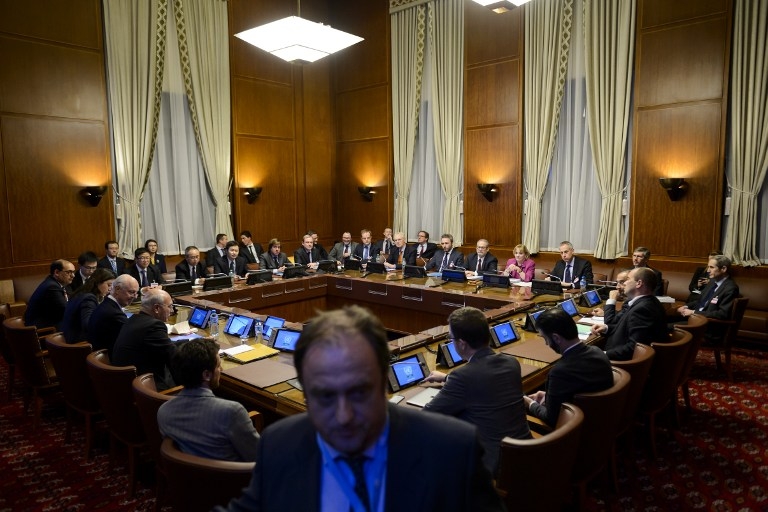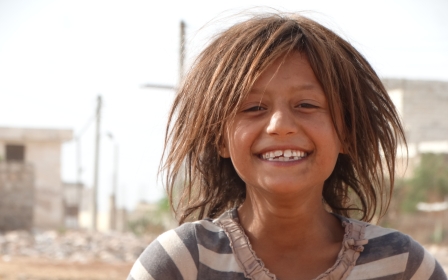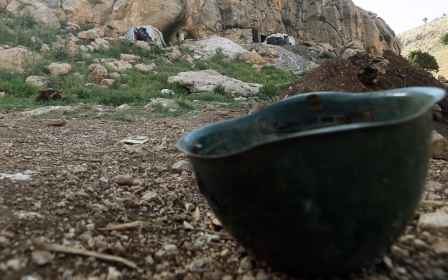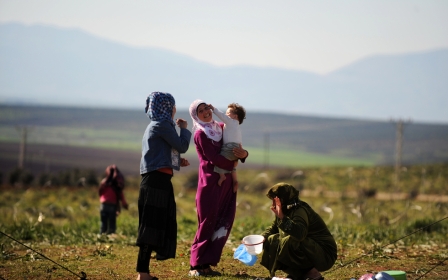Syria peace talks face a 'few' days of delay: UN

Peace talks aimed at ending Syria's brutal conflict will probably be delayed by a few days past the scheduled start date on Monday, the United Nations said.
"It is likely the 25th may slip by a few days for practical reasons," said Jessy Chahine, a spokeswoman for UN Syria envoy Staffan de Mistura, who is scheduled to host the talks.
In an email to AFP on Thursday, Chahine stressed though that "we are still aiming for that date and we will in any event assess progress over the weekend."
The talks, due to begin on 25 January in Geneva, have been delayed over disagreements, largely between sponsor countries US and Russia, over which opposition groups will be invited.
Russia has called some of the groups on a US-backed list made in an opposition meeting in Saudi Arabia last month "terrorists" and has refused to negotiate with them.
Instead, Moscow wants the inclusion of opposition figures who have remained loyal to President Bashar al-Assad, as well as Kurdish groups fighting IS, the Washington Post reported on Wednesday.
Late on Wednesday, after talks with US Secretary of State John Kerry in Zurich, Russian Foreign Minister Sergei Lavrov rejected suggestions that negotiations might be delayed.
As of Thursday afternoon, however, de Mistura, who is charged with inviting participants to join the talks, had not sent invitations, a source close to the Syrian supreme commission, the opposition body formed after talks in the Saudi capital last month, told Middle East Eye.
The Saudi-backed opposition coalition on Wednesday said it would accept no such interference as it announced its negotiating team for the Geneva talks.
Mohammed Alloush, a political leader of the Saudi-backed armed group Jaish al-Islam, was announced as chief negotiator by the coalition's general coordinator, Riad Hijab.
Asaad al-Zobi, a general who defected from the Syrian army, will serve under Alloush as head of the delegation, with Syrian National Council chief George Sabra his deputy.
Jaish al-Islam is designated a terrorist organisation by Moscow.
Sabra said that no one had "the right" to object to or interfere with the opposition's choices, and that any attempt to do so would end talks before they began.
But even beyond struggles over the invite list, Russia's air strikes have helped Assad hold enough ground that it is not clear, as Western governments had once hoped, that he can be removed from power.
“Russia’s strategy is to weaken the Syrian opposition to the point of elimination, so that in the future Russia may well be able to argue that there is no one to negotiate with,” Lina Khatib, a senior research associate at the Arab Reform Initiative, told the Washington Post on Wednesday.
Stay informed with MEE's newsletters
Sign up to get the latest alerts, insights and analysis, starting with Turkey Unpacked
Middle East Eye delivers independent and unrivalled coverage and analysis of the Middle East, North Africa and beyond. To learn more about republishing this content and the associated fees, please fill out this form. More about MEE can be found here.




